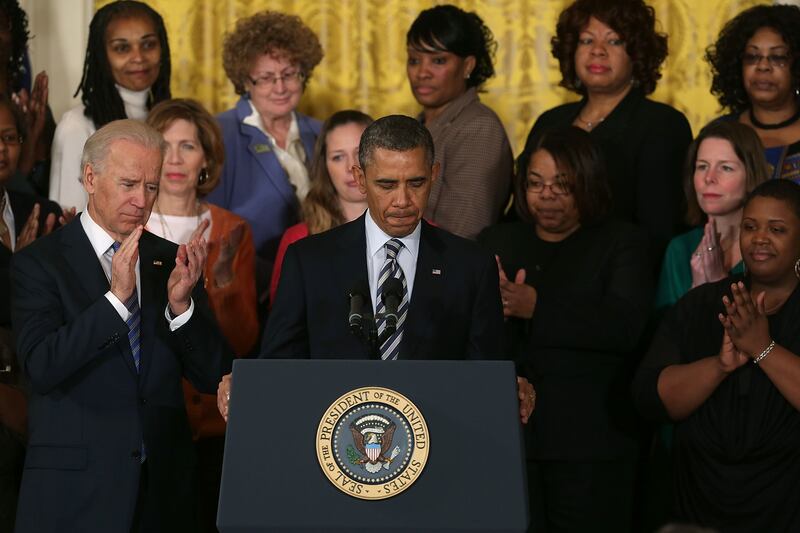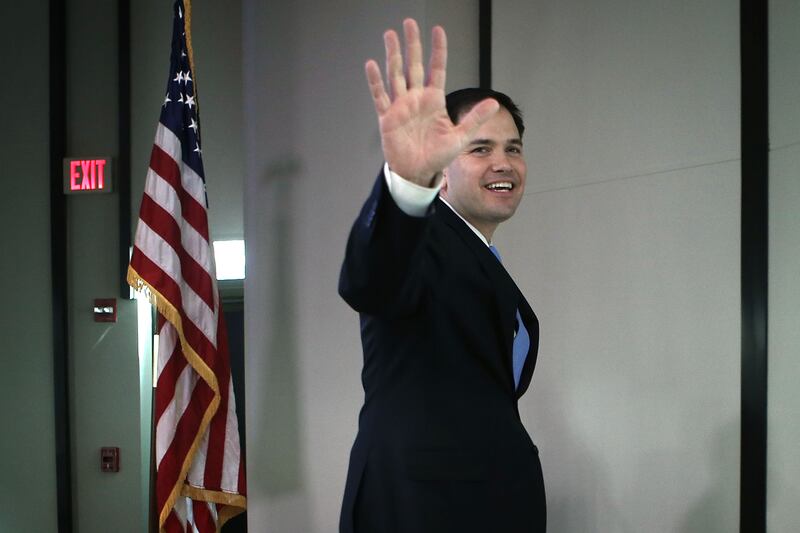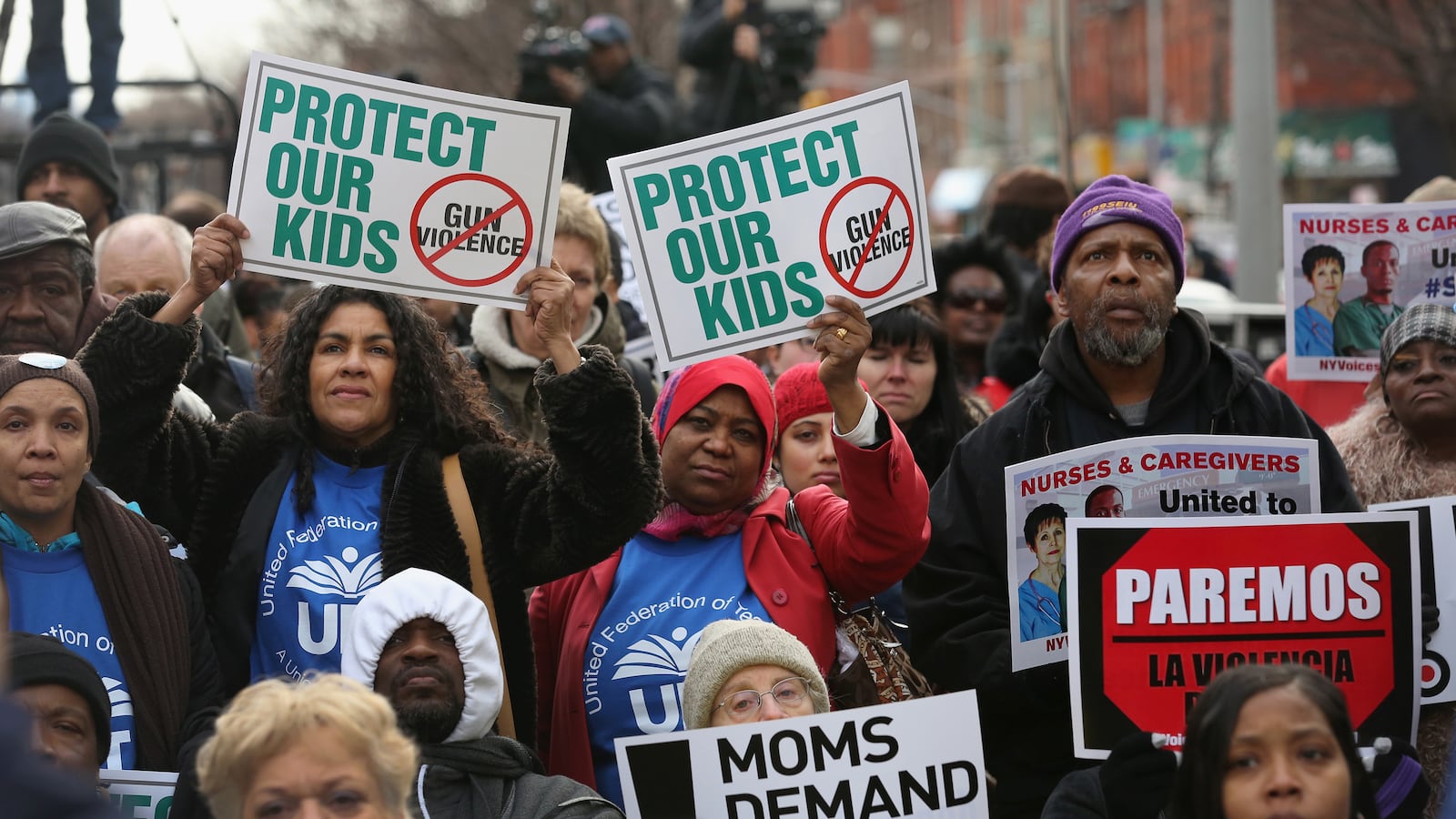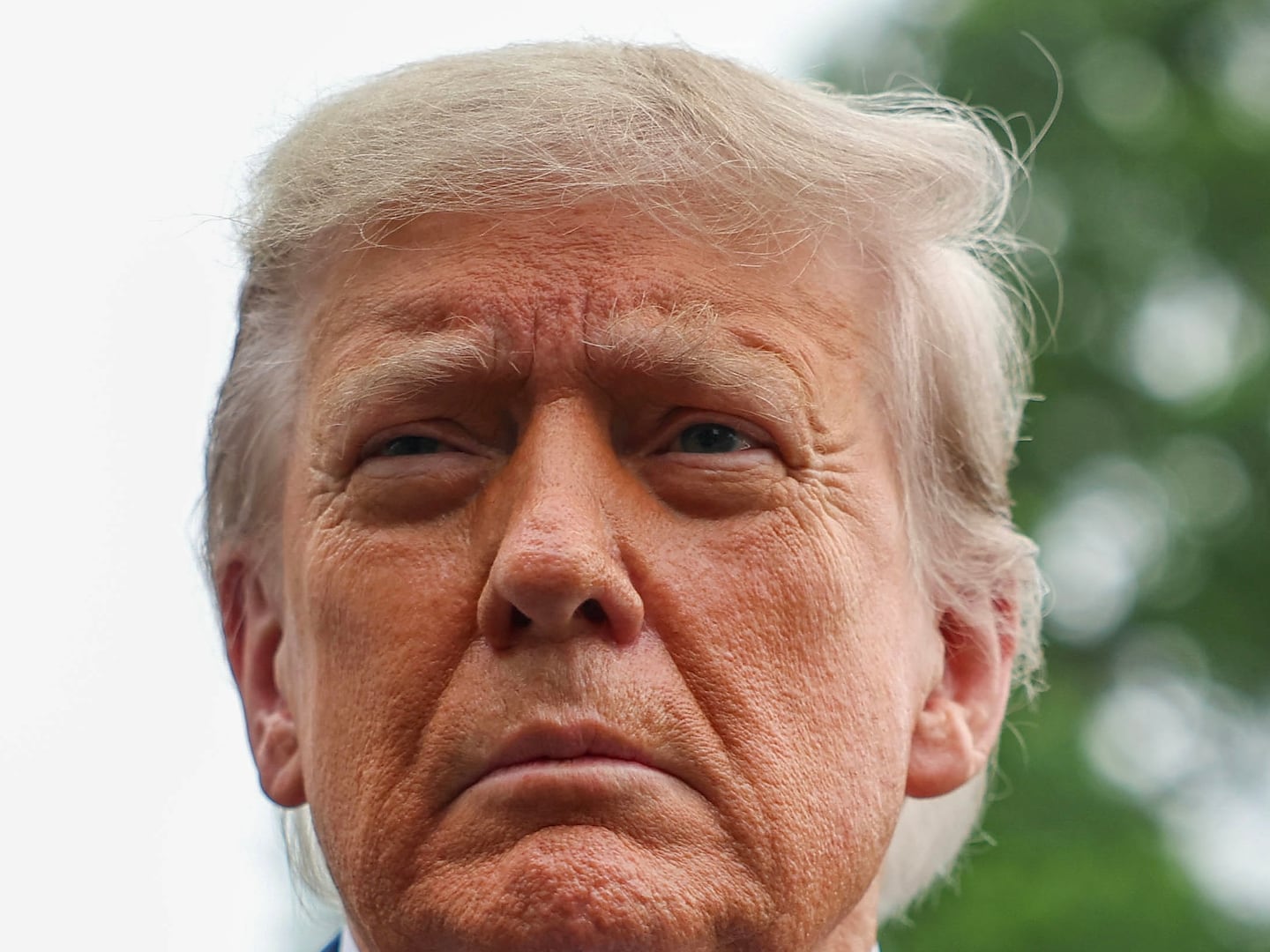Gun safety advocates are getting a wakeup call this week, with two measures that just days ago seemed almost certain to pass are now looking iffy in the Senate.

Big majorities of Americans across partisan lines, including gun owners, support expanded background checks on gun buyers, but talks to reach a bipartisan compromise are stuck on the issue of record-keeping. Only licensed gun dealers keep records, not the federal government, but the National Rifle Association warns that expanding background checks to all private and commercial sales is a first step toward federal confiscation of guns.
A companion bill to stiffen penalties for gun trafficking, which had enjoyed broad support, is also being systematically weakened by NRA opposition. “This is an old trick of theirs that they still perform well,” says Jim Kessler, a veteran of Capitol Hill and a co-founder of the centrist Democratic group Third Way. “They attach seemingly innocuous language to legislation to make laws either toothless or open the door to weaker gun policies.”
On the gun-trafficking measure, the NRA is pressing friendly lawmakers to add legislative language that would raise the standard for prosecution to require knowledge that the weapon being purchased is intended for use in a crime.
President Obama travels to Colorado on Wednesday to speak at a Police Academy not far from the Aurora movie theater where last year’s mass shooting occurred. Despite frequent events focused on gun safety—including an emotional appeal at the White House last week surrounded by mothers who’d lost children—Obama has been criticized for not moving fast enough after the Newtown tragedy, relying instead on a divided and balky Senate to act.
“What we’re facing is the passion gap, and that’s what the president is trying to fix,” says Rep. Jan Schakowsky (D-IL). The poll numbers argue for new gun laws, but advocates for gun safety have been unable to translate polling strength into legislative action.
Still, there has been some movement, she says. Members used to vote with the NRA without even reading a bill after learning that the lobbying group would count that vote in its rankings. “It was a free ride, and it isn’t so free anymore.” Several groups formed in the wake of the Newtown school shooting reveal a big gender gap on guns, “and when you have a big gender gap, that’s power,” says Schakowsky.
It’s not passion that gun safety advocates lack, says Kessler, it’s what could be called geographical or regional heft. Gun-safety proponents are concentrated in urban areas in big states, while gun-rights supporters live in less populated rural states that still have two senators apiece. “It’s true big majorities favor background checks—79 percent in Montana,” says Kessler, but veteran Democratic Sen. Max Baucus remains a major holdout on background checks and opposes a ban on assault weapons. Despite the poll numbers, that won’t hurt him in Montana. “Other more vulnerable Democrats aren’t united as to whether this hurts or helps them,” says Kessler, a sign that the NRA’s grip is weakening.
Republican Sen. Tom Coburn is the key to any Senate deal on background checks. Back home in Oklahoma this week, he’s still talking like compromise is possible, but says he would vote against any measure allowing the federal government to keep track of who owns guns, a provision that isn’t under consideration.
“At a certain point, the two sides have to come to an agreement on that provision or get a divorce,” says Kessler, “and if they get a divorce, the path to passage becomes significantly more difficult.”
Mark Glaze of Mayors Against Illegal Guns says the fixation on federal record keeping is “a straw man that the NRA can then claim they kept out of the bill.”
The Senate will take up the package of gun legislation when members return from spring recess next week. The Washington Post calls it the “moment of truth” when, after all the rhetoric, the voting gets under way. With a ban on automatic weapons and large magazine clips already sidelined, the outlook for major gun reform appears bleak, but advocates still hold out hope for a deal. “We’re getting towards the finish line on this, but that focuses the mind—it’s when deals get made,” says Kessler.
A $12 million ad campaign funded by New York City Mayor Michael Bloomberg called out a number of red-state Democrats by name, helping to prompt at least two—Indiana’s Joe Donnelly and North Carolina’s Kay Hagan—to support background checks.
Senate Majority Leader Harry Reid, once a favorite of the NRA, didn’t get the gun lobby’s endorsement in 2010, and now he’s putting his considerable legislative skills to bear on salvaging what he can on background checks and trafficking without forcing vulnerable red-state colleagues to take uncomfortable votes.

“In the end, it’s going to take 60 votes, so it’s not just protecting Democrats,” says former Reid spokesman Jim Manley. “He’s going to need Republicans, and not many, if any, are going to break.”
Five Republican senators, including rising stars Marco Rubio, Ted Cruz, and Rand Paul, say they will filibuster any attempts to impose new restrictions on guns. “I think this is a right of passage for people who look in the mirror and see the next Republican president,” says Glaze, who expresses amazement that someone with as bright a political future as Rubio would take such a visible stand against a measure that has such strong public backing. And that, of course, has to do with the enduring power of special interest politics.






